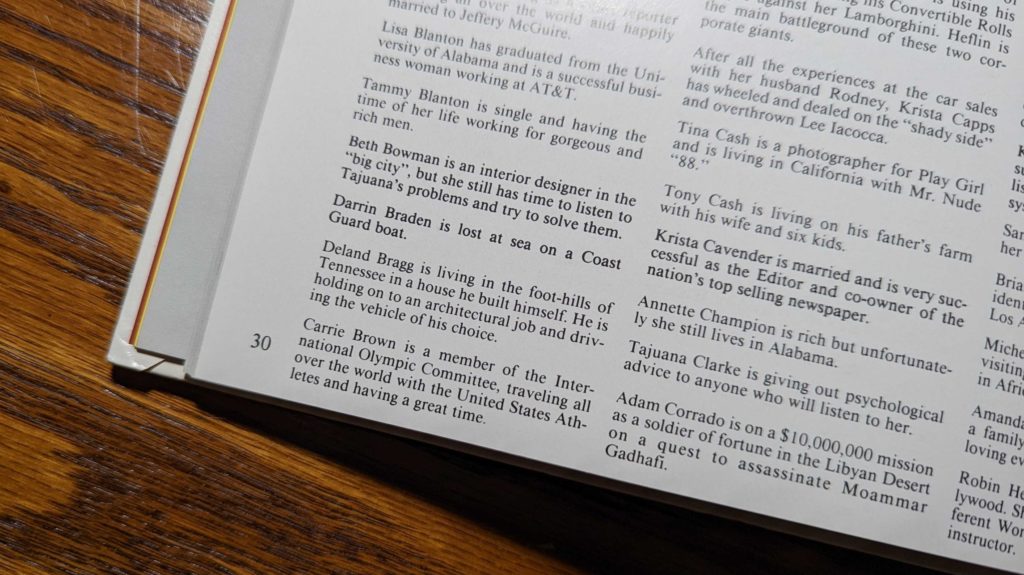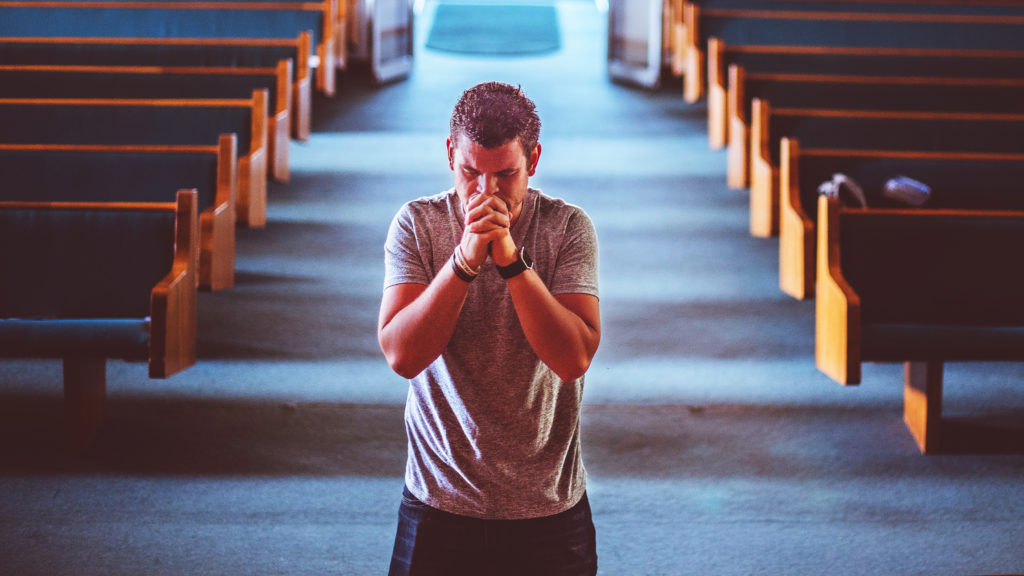By Jennifer Davis Rash
The man carried himself with confidence and purpose. He walked into the church and up to the welcome desk without hesitation.
“I’d like to go to your singles Sunday School class,” he said.
“No problem,” one gentleman said and pointed the man my way. “She will help you find your class.”
As I wrapped up my conversation with a family of five new to our church and regrouped to help the gentleman at the desk, I noticed several people walk by and greet him, speak to him, pat him on the back, etc. Our church is a friendly church and the members are good about welcoming guests, but in this particular case no one spent more than a few seconds with the man before moving on.
When he turned to look at me, all I could see was pain in his eyes. He said all the right words and knew what to do in a church setting, but something wasn’t right. I purposefully didn’t take him to a class right away. I spent some time talking with him, got him a soda, asked questions and tried to get to know more about him. Within a few minutes, he was sharing his real story with me and he definitely needed to talk. He also needed a different class than the one he came in asking about.
The more I heard his story, the more I could narrow down which Life Group (or Sunday School) class would be best for him. I also knew exactly which leader would connect with him and personally located the class leader so that I could introduce them immediately.
The connection was made, phone numbers and email addresses were exchanged and the man knew he had a family of faith willing to walk with him on his journey.
The experience that Sunday shook me a bit. What if I had not slowed down long enough to really look into his eyes? What if I had not noticed the pain? What if I had not shown compassion and truly cared about him as a person?
Of course, the next person may have done all the right things and taken even better care of the situation, but it reminded me that we shouldn’t leave these opportunities for the next person. What if the next person isn’t paying attention?
God gave me the opportunity to encourage a fellow believer who was in a world of hurt that day. It meant I had to rearrange my schedule. It meant I didn’t finish a project for one of the ministers when I said I would. It meant I missed catching up with many of my friends. But it also meant receiving a tremendous blessing.
As I drove home from church, I thanked God for allowing me to participate in the experience. I also wondered how many other hurting people had walked up to the welcome desk and received a friendly greeting but nothing deeper. How many others had I not noticed?
What about in everyday life outside of church? How many people do we see every day and never slow down long enough to read their eyes, observe their body language or notice their words?
And if we are honest, how many times do we sense someone needs to talk or needs a friend, but we don’t want to invest the time, change our schedule or deal with it in general? How many times have we been so focused on the latest office or family drama that we missed noticing the sadness in the eyes of the person listening to us?
As Christian believers and church families, what difference could we make if we all slowed down and served others through the gifts of awareness, listening and encouragement?
_________________________________________________________
Rashional Extras
Editor’s Note — The following piece came in response to the Feb. 7 Rashional Extras note requesting readers to share their experiences related to grieving families.
A Window to My World
When my 21-year-old son was diagnosed with neuroblastoma on Sept. 24, 2011, I started a personal journal. I titled it “With God’s Help” and it was intended to be a way for me to process the journey ahead as we took John to MD Anderson Cancer Center the next week.
Instead, John died before we could even get on the airplane, just a few days later on Sept. 30.
The journal has become something else, a way to pour out my pain, to work through how to think, feel, be and do in this new life I now live. I do not hold back. It was such a relief to read the first page of C.S. Lewis’ “A Grief Observed,” a journal he kept about the death of his wife. His description of how grief feels gripped me and emboldened me to write honestly about my own journey. I write when the feelings well up and need to be expressed. Sometimes I write twice a day. Sometimes I skip months at a time. Sometimes it helps.
The following excerpt is what my grief felt like a little over a month after John died.
Wed., Nov. 8, 2011
I don’t want to do this.
There is a beautifully wrapped package on my desk with a card, and I am supposed to open it. A sweet and kind and caring professor at the university where I work put it in my chair when I was off campus, and now I am supposed to open it.
I don’t want to.
I don’t want to be getting presents because my son is dead.
I don’t want to be watering plants that were sent because my son is dead.
I don’t want to be crying in agony in the backyard under the stars at night because my son is dead.
I don’t want to go into his bedroom and look at his things and touch them and not touch my son because he is dead.
I have done all the things I am supposed to do. I have gotten up in the morning and put on clothes and makeup and gone to work and walked around looking all normal when inside I feel like my heart has been ripped out and nothing is there.
I laugh.
I smile.
I make appropriate comments at appropriate times.
When someone asks — even when they don’t ask — I talk and talk and talk about my son. When I am talking, I’m not having to look at my emptiness. I can just talk about it, and it’s pushed away for the moment so I don’t feel.
I don’t want to do this.
I have done this long enough. I have done what I am supposed to do.
Now I want John back. I want to touch his face. I want to reach up and hug his neck. I want to feel his hand and watch him move. I want to walk into his bedroom like I did just a few weeks ago and see him lying on his back, his chest rising and falling as he breathes, with the cat perched atop his stomach.
I don’t want to open this pretty package.
Because the only reason I have this package is that my son is dead.
Kathy Dean
Director of media relations, University of Mobile
__________________________________________________
In response to your request in the Feb. 7 Rashional Extras for experiences about grieving families:
My wife of 40 years died in an automobile accident on Christmas Day 2007.
Was I devastated? Of course.
Will I ever get over it? Probably not.
Did I give up? Not an option. I had two children and two grandchildren who were waiting to see what I would say and what I would do. I did not want — by example — to give them permission to give up. This is certainly not the last trial that they will face and they must be prepared to face the situation and go on.
It is OK and even a good thing to cry and grieve a loss — after all even Jesus wept. I personally don’t believe that God causes these tragedies in our lives but I do believe we are judged by how we deal with them.
My advice to my own family was to get closer to God, closer to family and reprioritize what is important in our lives in order that we might appreciate our blessings and minimize our troubles.
Max Till
Repton, Ala.
_____________________________________________
Excerpt from www.characterpath.com, a blog by Gary Fenton
Pastor of Dawson Memorial Baptist Church, Birmingham (Dawson Family of Faith)
How about this idea for a new Christian television reality show: “Spiritual Hoarders.” Christians who go to Bible studies and worship, read Christian books, and listen to Christian music but never serve would tell their stories. Then a group of believers would perform an intervention. You could hold auditions in almost any church on Sunday morning. This show, of course, would be a take-off of the popular A&E show, “Hoarders.” But then we Christians do not appear to be too concerned about patterning ourselves after the world. Christians are intended to be God’s investment bankers. God places spiritual gifts, natural talents and the fullness of the Holy Spirit in us, and then He expects a return on His deposit. The gifts of God are not ours to hoard, to hold and to treasure but to use for the glory of God and the good of humanity.
EDITOR’S NOTE — Characterpath.com approaches character from the perspective of the soul and personal conduct and is built on the assumption that character is more than just a system of values, but involves a right heart and informed mind.






Share with others: